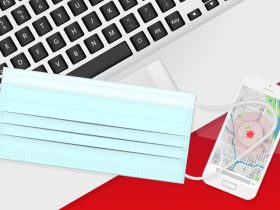Data breaches allow unauthorized people to gain access to confidential and sensitive information. This can become an immense issue especially if cybercriminals misuse this data by gaining access to your online accounts or even bank accounts. Read on to learn how to protect your personal data and what you can do if you’re affected by a data breach. Also discover how Avira Password Manager’s alert feature can help you surf the internet more safely and privately if your password is hacked.
What is a data breach?
A data breach is said to have occurred when information from a system is accessed without authorization. This data can include personal information such as an email address, your first and last name, or other confidential information such as credit card numbers. Personal and financial information are among the most frequently stolen types of data — and businesses, authorities, and private individuals can all be affected by such a data breach.
What impacts can a data breach have?
For companies, a data breach is usually damaging to their reputation because consumer trust is lost. The likely consequences include financial loss, and trade secrets can also be made public. Companies like Yahoo, Facebook, and Twitter have all fallen victim to data breaches. They’re prime examples of how a data breach can damage companies since many people now associate them more with the data breach than their actual business operations.
What impact do data breaches have on private individuals?
Data breaches can have negative consequences for consumers. Here’s a list of common threats:
- Identity theft: This is one of the biggest threats. If sensitive information is revealed through a data breach, hackers can misuse it — often for criminal purposes. This can have legal consequences for those affected, especially since this type of fraud is often difficult to prove. Theft can also ruin the victim’s credit rating. If you’ve fallen victim to identity theft, Avira Identity Assistant (currently only available in Germany) can help you restore your identity.
- Financial losses: If sensitive information such as bank account details or online account credentials are revealed as a result of a data breach, cybercriminals can use it for a range of dastardly deeds — including making transactions in their victim’s name. And if those affected are too slow to spot this is happening, the financial losses can pile up.
To protect yourself from the fallouts of a data breach, you first need to understand how one can happen. Let’s explore that now.
Causes of data breaches on the internet
Common causes of a data breach can include a targeted attack, carelessness on the part of those affected, or vulnerabilities in the business’s infrastructure — the list goes on.
- Unauthorized access: Devices such as laptops, mobile phones, or USB sticks containing sensitive data should always be encrypted or password protected. If unprotected hardware is stolen, unauthorized persons can easily access the data stored on it.
- Targeted attack: In the case of planned data breaches, cybercriminals deliberately attempt to obtain confidential information about a person or organization. To do so, they use various techniques such as phishing attacks or malware.
In addition, hackers systematically search for potential weak spots — be they in a business’s or private individual’s hardware or software. This allows them to penetrate systems and steal special categories of personal data such as access authorizations or bank details.
How can consumers proactively protect their data?
Private individuals can also take steps to protect themselves from data breaches. Check out your local consumer protection organization for top tips on how to protect your personal data, including the following:
- Check who you’re sharing your info with: Be careful what information you share with others. Some companies deliberately use competitions or other promotions to get their hands on your personal data. So always read the terms and conditions carefully beforehand and, if in doubt, don’t enter.
- Check your accounts: Keep an eye on your user and bank accounts. If you notice suspicious logins or unknown transactions, report them immediately to the site operator or your bank.
- Use two-factor authentication (2FA): If possible, it’s worth setting up two-factor authentication. This makes it more difficult for cybercriminals to access your user accounts — even if they’ve stolen your login details. That’s because the hackers also need a code that’s sent to a chosen device, such as your mobile phone, to authenticate the login. If you receive a message asking you to verify a login attempt even though you never tried to log in, it’s likely a hacker is trying to break into your account. In this case, change your password immediately.
What can you do if there’s been a data breach?
If you’re on the receiving end of a data breach, you can file a complaint with your national communications regulator, consumer protection organization, or local supervisory authority.
Unaware of your personal data being breached, but spot irregularities on your bank statements? Then contact your bank immediately and dispute the unauthorized debit. If a debit is made without your consent, you can also file criminal charges and submit a report to the responsible data protection supervisory authority.
GDPR: A uniform data protection standard
Since the General Data Protection Regulation (GDPR) entered into force, consumers across Europe have benefited from uniform data protection laws. This is especially important in the digital age, as more and more personal data is available online due to digitalization. If you order clothes online, the web shop has access to your email address, your first and last name, and your home address. Your credit card details and date of birth are also often requested and stored by the business — posing a significant risk.
That’s because if there are weaknesses in the business’s infrastructure, this makes it easier for hackers to gain unauthorized access to this personal data. Among other things, cybercriminals can hack your email account or gain access to your other accounts. As such, it’s important to be careful about how you handle your personal information online. If you’re unsure, you can ask the website operators what the data is used for. Also use secure passwords.
Use a password manager and protect your personal data
Having strong and unique passwords for each of your user accounts is critical for strengthening your data protection and data security on the internet. The benefit is that if one of your accounts is hit by a data breach, other accounts are usually unaffected. This is where a password manager comes in really handy, helping you generate secure passwords and keep them organized.
Avira Password Manager is a practical solution to manage your passwords — you can also use it to generate super-strong passwords. All you need to remember is the master password that allows you to access the tool. This protects your login information from unauthorized access. In addition, the alert feature warns you if your passwords have been hacked or websites with which you have an account have suffered a data breach.














